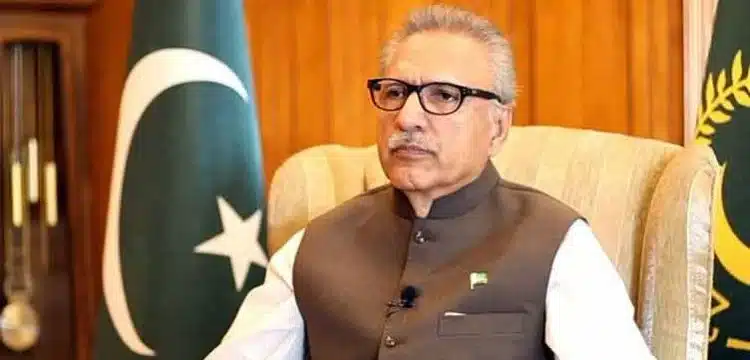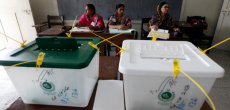[vc_row][vc_column][vc_column_text dp_text_size=”size-4″]President Arif Alvi has communicated his refusal to convene the inaugural session of the National Assembly until the Election Commission of Pakistan (ECP) completes the allocation of reserved seats to all political parties with representation in the lower house. Despite receiving a summary from the Ministry of Parliamentary Affairs, Alvi asserts that the lower house remains incomplete without the ECP’s allocation of reserved seats to certain political parties.
The ECP has already assigned reserved seats to all political parties except the Sunni Ittehad Council (SIC), which absorbed all winning candidates of the Pakistan Tehreek-e-Insaf (PTI) to ensure their inclusion in the National Assembly after the February 8 General Elections. The ECP cites the pending status of the SIC reserved seats matter before the commission.
Read more: Malik Ahmad Khan Takes Oath As Punjab Assembly Speaker
President Alvi has neither accepted nor rejected the summary, providing only verbal communication on the matter. The interim government insists that the National Assembly session will proceed on February 29, even if the president does not sign the summary as outlined in Article 91 of the Constitution.
Ishaq Dar, a senior leader of the Pakistan Muslim League-Nawaz (PML-N), notes that the National Assembly speaker could summon the session on February 29 if the president fails to do so under the Constitution. The caretaker government underscores the constitutional requirement to convene the National Assembly session within 21 days of the general elections.
If the president does not sign the summary, the session will proceed on February 29 in adherence to the Constitution. Caretakers emphasize the mandatory nature of convening the session within 21 days under Article 91(2) of the Constitution.
Earlier announcements by the caretaker Minister for Information, Broadcasting, and Parliamentary Affairs, Murtaza Solangi, suggested the possibility of the first session occurring between February 22 and February 29. Solangi explained that the president’s role is to convene the session within 21 days, with a simple majority required for government formation. Following the 18th Constitutional Amendment, the president’s office represents the Federation, and the president lacks the authority to invite specific individuals or parties for government formation.
The constitutional timeline requires the president to convene the National Assembly session within 21 days of the polling day. During the inaugural session, the current speaker will administer oaths to newly-elected MNAs, followed by the election of the speaker, deputy speaker, and prime minister.[/vc_column_text][/vc_column][/vc_row]











